Soul & Spirits Brewery’s Hoochie Coochie IPA is the best craft beer in Memphis, according to the more than 800 voters of the Memphis Flyer’s 2024 Beer Bracket Challenge, sponsored by City Brew Tours, Eagle Distributing Company, and Cash Saver.
This marks the first time Soul & Spirits has won our challenge. The brewery had not yet opened its doors in 2021 when we last held it. Their win unseats Crosstown Brewing Company, who has held onto the VanWyngarden Cup since 2021. Back then, Crosstown’s Traffic IPA upended Meddlesome Brewing’s three-year reign atop the Flyer’s annual beer bracket contest with its 201 Hoplar.

Ghost River Golden took top honors in 2017, the first year of the competition. But it’s been IPA all the way since then. That’s five wins for an IPA — apparently the top style in Memphis — almost every year we’ve done this.
Since Soul & Spirits opened in 2021, it’s won top honors — Brewery of the Year — in 2022 and 2023 in the Tennessee Championship of Beers.
“Winning a competition against your peers is really cool but to have people locally vote for us — that this is their favorite beer in Memphis — that means a lot,” says Blair Perry, who co-founded and owns Soul & Spirits with her husband, Ryan Allen. “We’re still really new, so it is nice that people acknowledge that we’re around and like what we’re doing.”
Allen and Perry say Hoochie Coochie IPA started as an American IPA, “but it just turned into chasing a flavor.” When asked what flavor, Allen says “goodness.” Hoochie Coochie’s hops change from batch to batch, he says, based on what’s available.
“But just trust me, we’re going on a road,“ Allen says. “We’re going on a journey.”
Perry says they’re always chasing a “juicy, citrusy flavor with a nice bitterness that makes you want to keep drinking.”
As for the name? It’s fun to say, they note, and one of the first beers they named. But it also fit with the Soul & Spirits naming convention. Memphis-area music plays onto the labels and into the names of Soul & Spirits beers. So conjure up “I’m a Hoochie Coochie Man” by Muddy Waters next time you sip a pint and search the can label for song references.
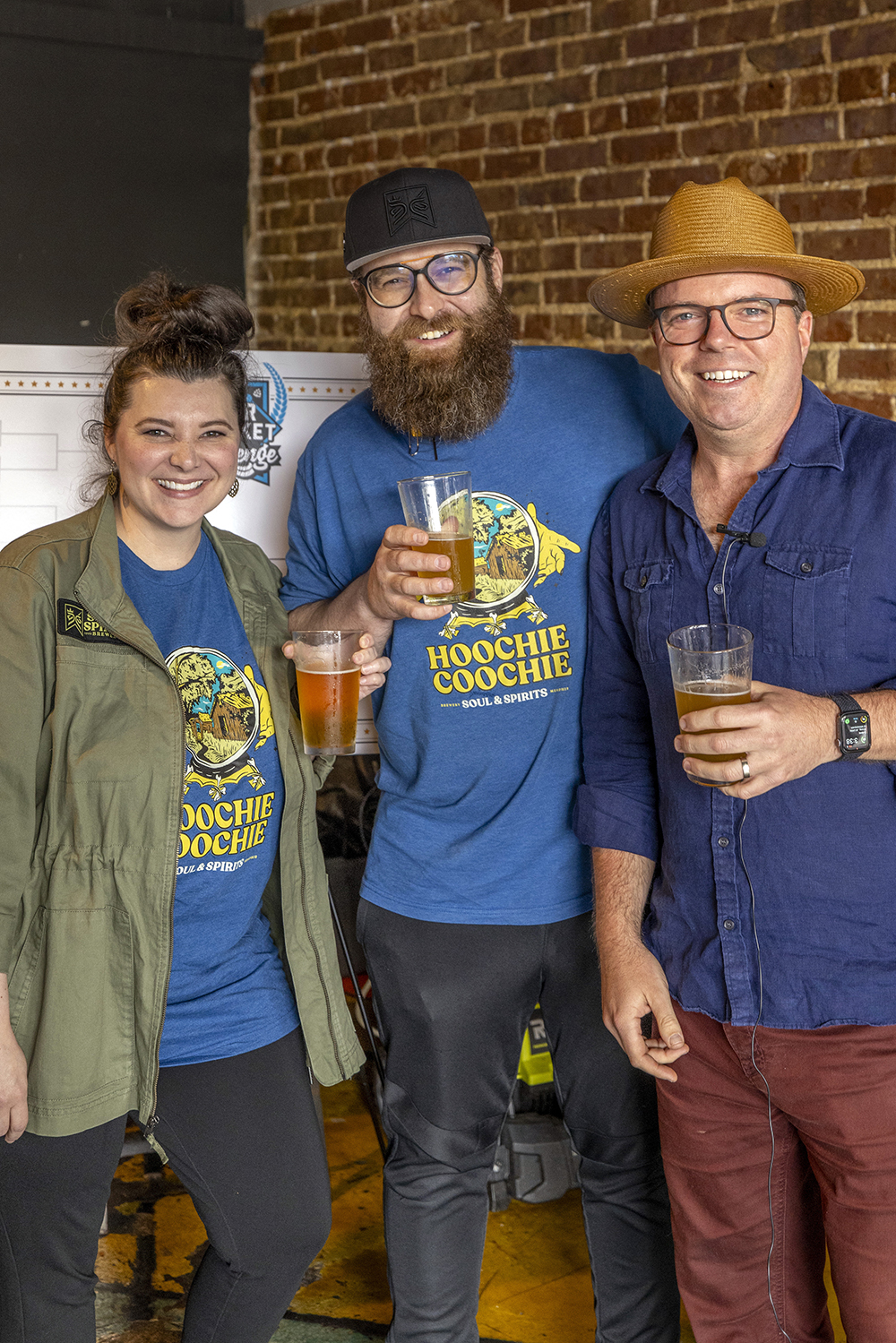
This year was completely different for the Beer Bracket. First up, we opened up the challenge to any brewery in Memphis, any size, whether or not they had beers in stores or not. That brought in Boscos, who, one could argue, blazed the path for craft beer in Memphis. The change also made room for some newcomers like Urban Consequence Brewing, Memphis Filling Station, Cooper House Project, and Memphis-area beer bar and brewpub, Mississippi Ale House.
Gone were any divisions that have, in the past, separated our bracket into very basic beer categories — light, dark, IPA, and seasonal. The beers commingled — stouts vs. IPAs, for example. Though, we made sure no two beers from the same brewery were seeded against one another.
In the end, we had 32 beers from 16 breweries. Each brewery selected two beers for random seeding. (I literally pulled the match-ups out of a hat.) These went right on our bracket. That bad boy was digitized, and over two weeks these beers faced off, fell out, or advanced to the next round.
The final round had Hoochie Coochie up against Cooper House Project’s Midtowner lager, which won a narrow victory over Hampline’s Tandem Pilot double IPA to make the finals. In the end, Hoochie Coochie emerged as the winner, edging out Midtowner by only 130 votes.
The Memphis Flyer Beer Bracket had more than 10,500 votes this year from states across the nation, though most votes came from Midtown Memphis.
You know we love beer at the Flyer. And we know you do, too. (Well, at least hundreds of local voters do, anyhow.) So, we felt a duty to let you know that state lawmakers had you on their minds this year. Here’s rundown of some legislation that could find its way to a pint glass near you.
The Law and Your Beer
It wouldn’t be a regular session of the Tennessee General Assembly if lawmakers didn’t change the way you drink, or try to, anyway.
Lawmakers thought about cold beer, drunk cops, and Sunday sales. They also thought about more serious matters like date rape and treatment programs for DUI offenses. Some ideas worked. Some didn’t.
No Cold Beer for You
Rep. Ron Gant (R-Piperton) knew his legislation “got quite the buzz,” a phrase pounced upon by another GOP lawmaker with “no pun intended!” Har har.
That legislation would have banned the sale of cold beer at stores. So you don’t have to go back and make sure you read that right, here it is again: That legislation would have banned the sale of cold beer at stores.
Eyebrows raised everywhere. Headlines stacked up. Message boards dripped with disbelief.
But when Gant first spoke about the bill, he said “the buzz” about banning cold beer sales was moot. It was part of the original legislation, but after meeting with stakeholders across the state (probably meaning lobbyists for retailers), it was no longer part of his proposal.
He clarified this during an early committee review of the bill. The intent was never to target 12-packs or 24-packs, it was on “high-alcohol, single-serve containers.”
“Some people have educated me on this,” Gant said. “They call them 2x4s or tallboys. You see them laying on the side of the road where they’ve been obviously thrown out. So, we know that they’re being abused, and people are drinking these, and not making it home to enjoy at their house.
“So, there was never going to be any intent — by me as the sponsor — to take away the right and the privilege for the good actors of being able to buy a 12-pack or 24-pack and take that home as responsible adults. I just want to make that clear, you know, for the record. So that everybody feels at ease. But none of that is included in this legislation.”
And feel at ease they did, it seems. Those hard headlines that read like “Proposed Tennessee Bill Bans Selling Cold Beer” (from VinePair) had softened to jokier ones like “Tennessee’s Cold Beer Ban Bill Is Officially On Ice” from Nashville’s News Channel 5.
For many, though, the idea seemed in range and on-brand for the GOP. Memphis Reddit users called it “stupid shit” and “bullshit” and that (sarcastically) these lawmakers were “tackling the real issues.” It also reminded them of another GOP fave: gun control.
“But … but … beer is an inanimate object,” wrote u/Boatshooz. “It doesn’t drink itself. And we don’t need to pass further laws that just hurt responsible drinkers, we just need to enforce existing laws.
“I swear I’ve heard that same argument from those same legislators about something else … can’t remember what it was. Why are they taking the opposite stance with beer?”
The law would, however, create a new group to study alcohol consumption and abuse in the state, with a report due annually. Gant said (but didn’t cite sources for his information) that drunk driving and alcohol consumption has surged in recent years. The bill was passed by the legislature but had not been signed by Gov. Bill Lee as of press time.
Sunday Sales
You’ve been there, probably. You’re headed to your Sunday Funday, walk into the grocery store only to find the beer section dark, maybe with shades drawn over them or a lock on the cooler door.
Then it hits you. That backward-ass state law says I can’t buy beer here until noon. You may even have a thought about some pious state lawmaker sitting in a church somewhere, praying that the law will somehow nudge you out of the beer aisle and into a pew somewhere. Well, those beer lights will remain off on Sunday mornings, at least for another year.
Nashville Democrats Rep. Bob Freeman and Sen. Jeff Yarbro tried to change that. They described the bill simply as “the alignment of the sale of alcohol on Sunday to every other day of the week.” They said many sporting events are overseas and on different time zones. Some venues, they said, would like to sell alcohol to those who want to watch them.
The only real vocal opponent of the bill was Rep. Tom Leatherwood (R-Arlington), the former Shelby County Register of Deeds. He tried hard to marry the Sunday-sales legislation with another Freeman bill focused on preventing sexual assault.
He called them “twin bills” even though they could not have been more different. But still he told his GOP colleagues that limiting Sunday sales could save a life, and someday, maybe, end up on your end-of-life sizzle reel.
“Now, any of us that have drunk the alcohol [yes, he said the alcohol] before … it will just naturally reduce the natural defenses of some. It’ll increase the natural aggressiveness of others,” Leatherwood explained. “Hence, it’s good to be aware of what can happen, as we will hear more about later. If you vote no on this bill, you may never know what young lady you save from sexual assault and harassment, to use the language coming up. You may never know. But then again, on the other hand, in that final judgment we will all face, you may find out who you save by voting no on this bill.”
For his part, Freeman tried to separate the two, saying, “You should be able to drink responsibly without being raped.”
Loaded Cops, Loaded Guns
Sen. Joey Hensley swore he had no idea where the idea came from or how it ended up in his legislation. But there it was, raising almost as many eyebrows as the cold beer ban: We were going to allow drunk cops to carry and use concealed firearms.
“As introduced, allows law enforcement officers to carry a firearm when under the influence of alcohol or controlled substances and certain other circumstances,” reads the bill description on the state website.
Hensley said all he wanted to do was allow everyone to carry weapons on college campuses, for crying out loud. (That idea didn’t even get the support of his GOP colleagues. The bill failed.) The drunk cops thing was added without his knowledge, he told Fox 13. But there it was in black and white pixels and the damage was done.
“TN GOP probably: Wait guys, I’ve got an idea,” tweeted Rep. Gloria Johnson (D-Knoxville). “I know Missouri one-upped us with their bill arming 3 [year olds], but I think we can counter with arming police officers who are drunk or high. Hear me out on this one …[three clown emojis].”
One supporter, though, over on a forum at tngunowners.com had another take.
“I know many seem to find fault with the concept of being armed and drinking, but really, as long as you’re not impaired,” wrote a user named Defender. “If you feel that strongly against it, maybe we should allow cars at bars or restaurants that serve alcohol.”
Date Rape
Rep. Freeman’s legislation (discussed earlier here) on alcohol and sexual assault passed this year, was signed by Lee, and will go into effect in January. That law will require anyone who serves alcohol to the public to take a course on the role of alcohol in sexual assault and harassment and on recognizing and reporting signs of human trafficking.
“If any of you remember, several years ago, the horrible rape case on a university campus here locally where a bunch of men carried a passed-out woman past 20 or more individuals that allowed it to happen,” Freeman said. “Not one of them stopped, said anything, felt empowered to do it, [or] understood what they could say.”
After this, the Safe Bar Tennessee program was developed by the Sexual Assault Center of Middle Tennessee. The program’s slogan is “See Something. Do Something.” Such training is already underway in Nashville, including some 50 bars Downtown, Freeman said.
Odds and Ends
Right now, certain folks under 21 can taste alcohol legally in the state. But they can’t drink it. Make sense?
Motlow State Community College, Jack Daniel’s, and Uncle Nearest have developed an associate’s degree in distilling that could produce more professionals in that industry’s workforce. Tasting the product gives students “real-world, practical experience” to “meet the critical need for their industry.” But they have to spit it out.
If you get a third DUI or BUI, you’ll have to wear a transdermal patch that will send a report to law enforcement if you have a drink. The main part of this legislation reduces jail time for the third DUI. Yet that only serves to give more time to commit to a 28-treatment program.
But the stranger, kind of Big Brother-y part of the law would make you wear that tattletale patch under your skin (so many questions) for three months or until your case is resolved, whichever came first. It goes into effect in July.
A bill would have yanked the alcohol license of a venue that served someone who later got into a car wreck that killed someone. It failed. Another bill sounds like it’s from the Prohibition era. It would have reduced “from two to one the number of credible witnesses who must be present when a law enforcement officer destroys an illegal distillery, a still, fermenting equipment, or related property.” It failed, too.
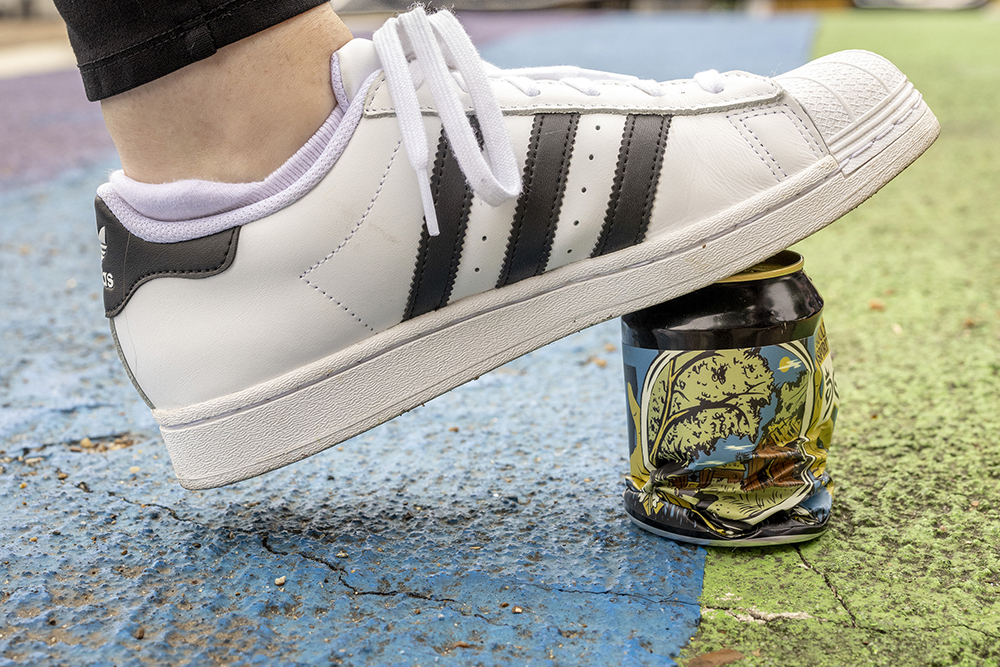
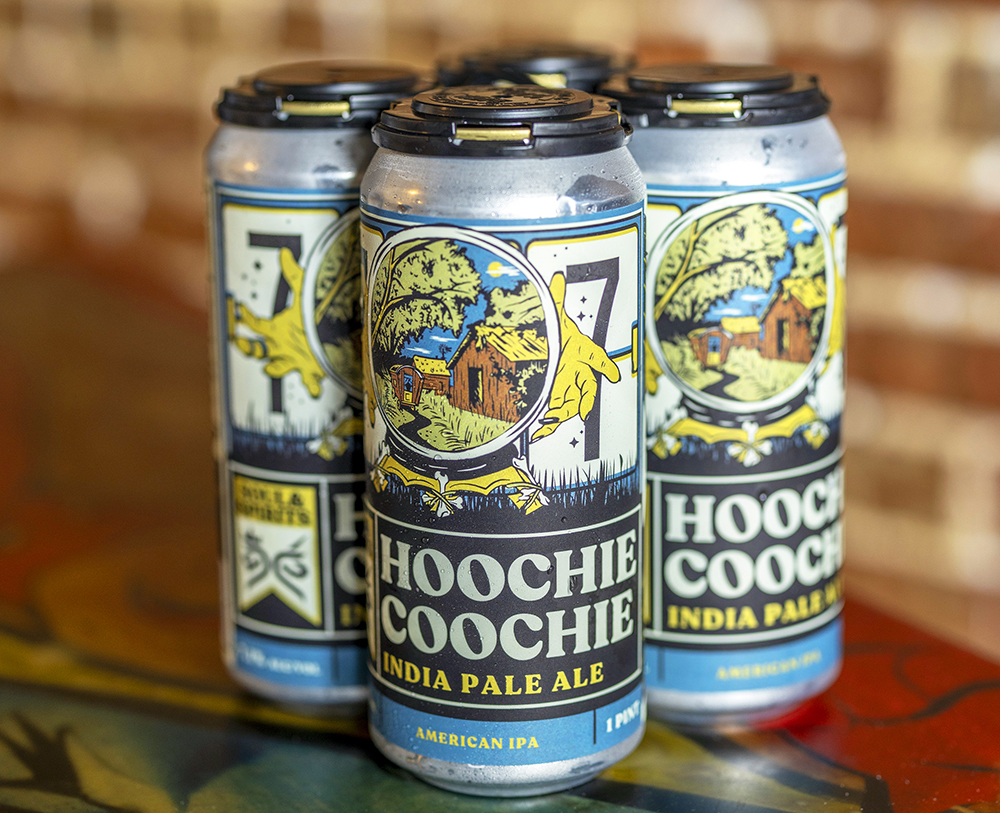
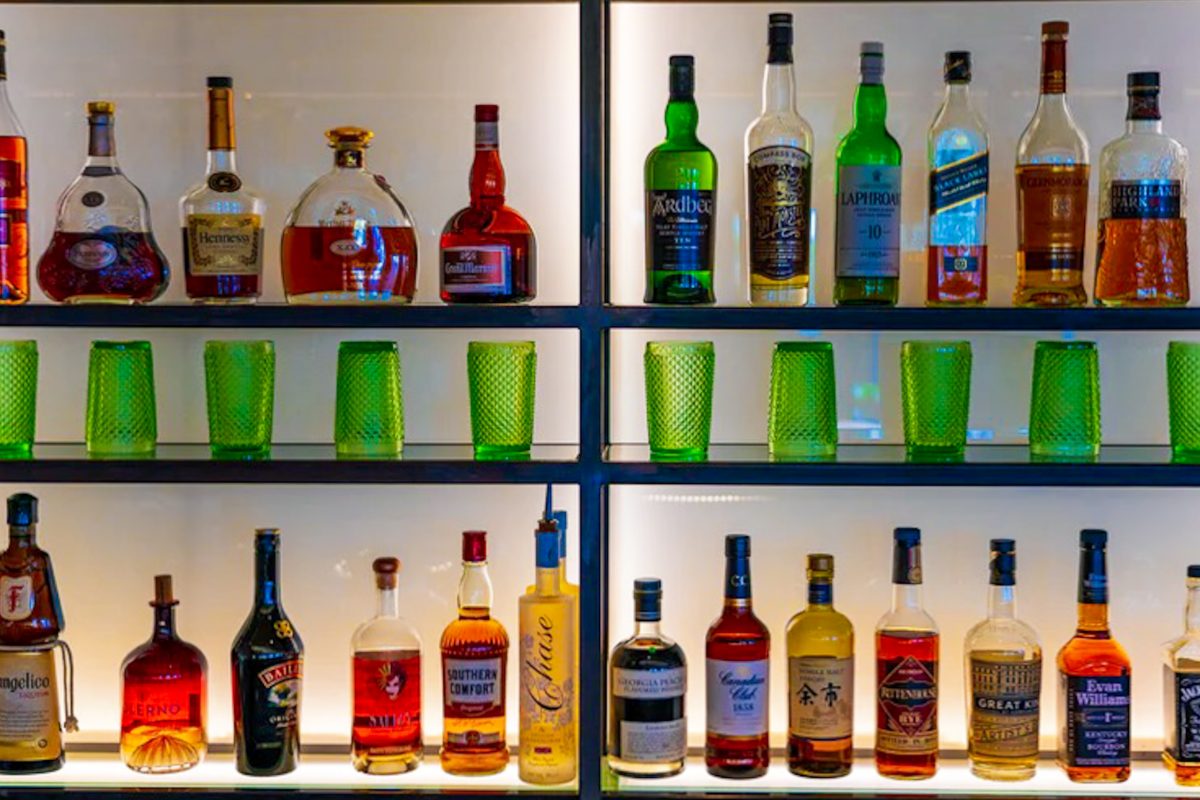

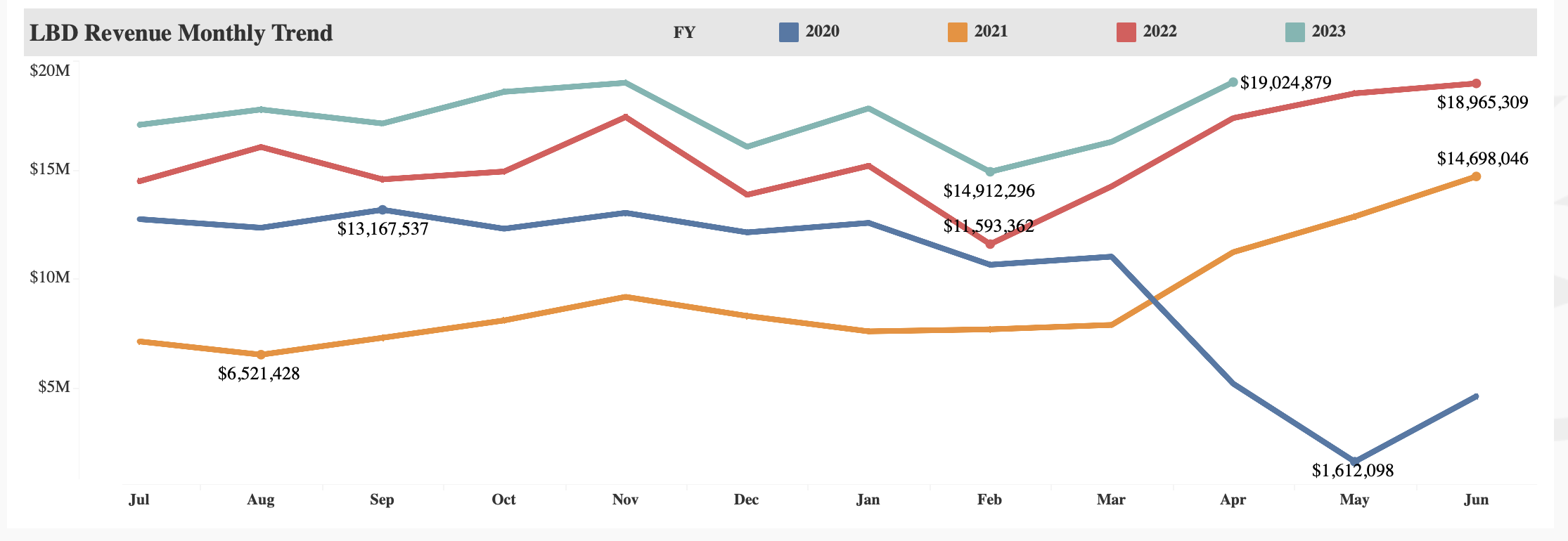

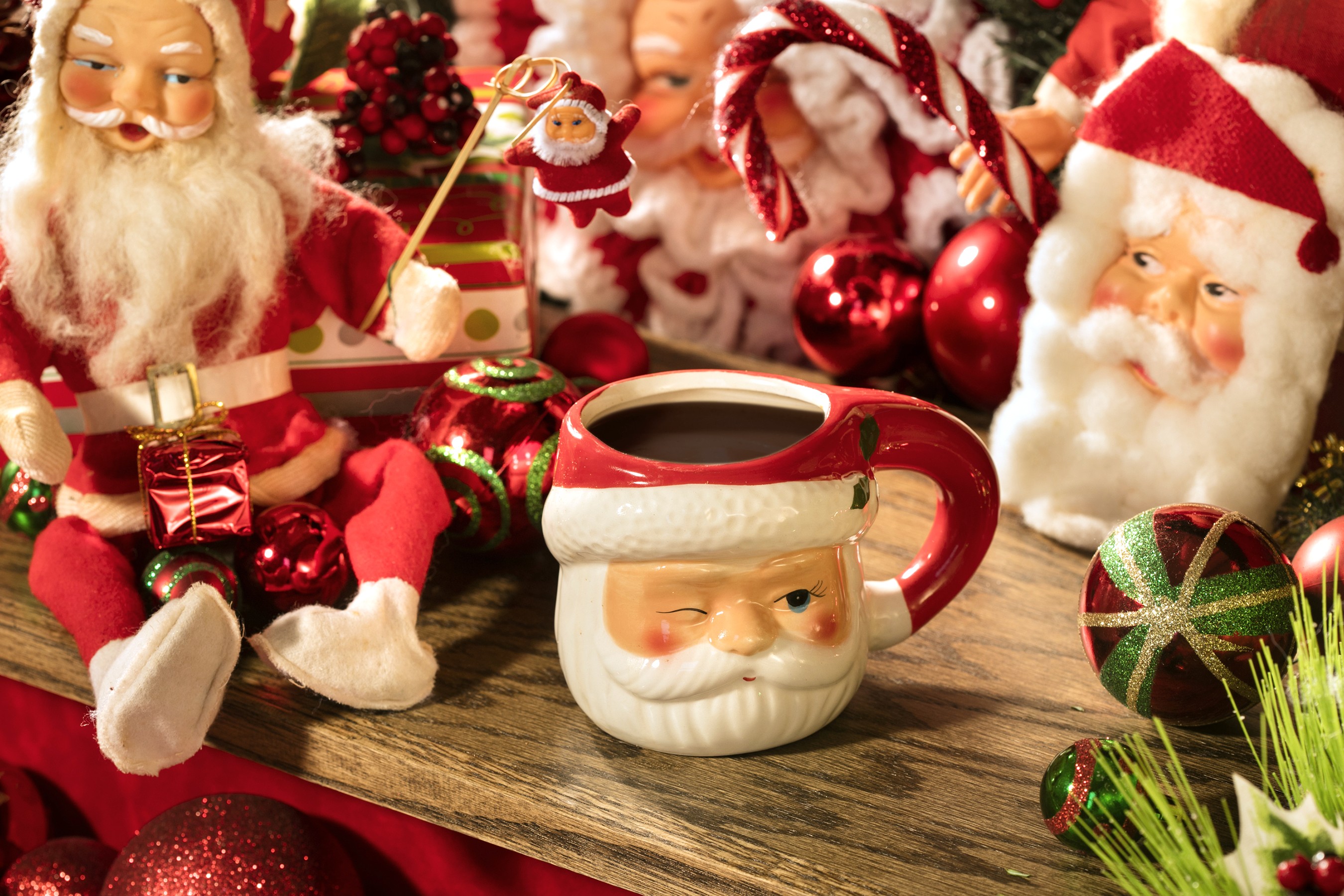 Melissa Hom
Melissa Hom 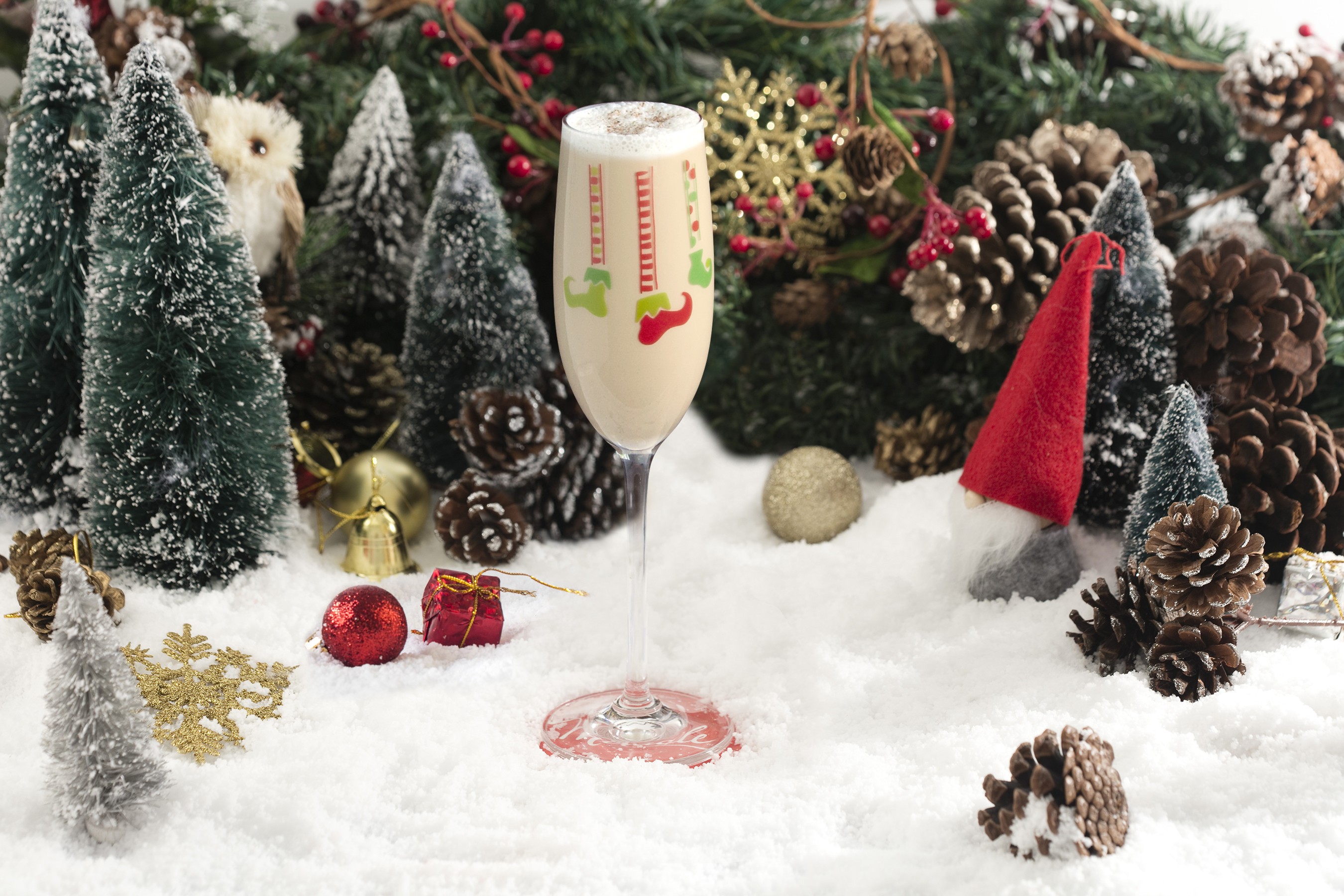 Melissa Hom
Melissa Hom 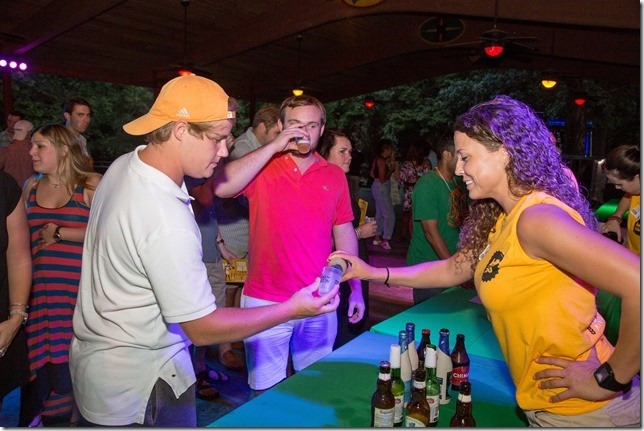

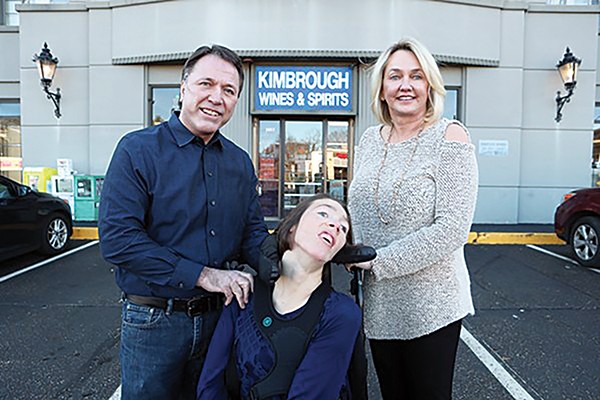 Institute for Justice
Institute for Justice